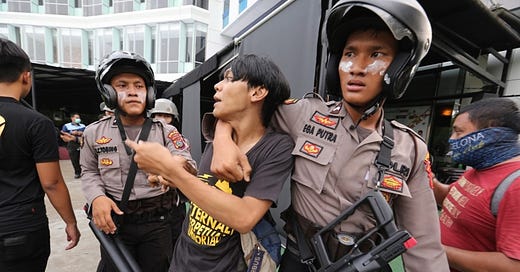By: Ainur Rohmah
The Indonesian police have recently become the target of massive ridicule by users of social media, particularly Twitter, after a series of incidents in October 2021 showed that their performance was unprofessional and they tended to use violence to deal with protests.
Established on July 1, 1946, the police institution is one of the coun…
Keep reading with a 7-day free trial
Subscribe to Asia Sentinel to keep reading this post and get 7 days of free access to the full post archives.



